Thankful Always: Keeping a Gratitude Journal
Now that the relatives have gone home and the pumpkin pie is gone, Thanksgiving is officially over. Hopefully, that doesn’t mean you are done with being thankful.
Expressing and cultivating gratitude has been found to have significant impacts on physical, emotional, and mental health. We should be grateful all year round – and you can by keeping a gratitude journal.
The Benefits of Gratitude
Gratitude makes us feel good - for many reasons. Many research articles emphasize the necessity of being grateful to maintain good physical and mental health.
Gratitude Enhances Physical Health
A study published in 2009 by researcher Alex Wood found that higher levels of gratitude were correlated to superior sleep quality and duration.

Although sleeping better is one of the more well-known physical benefits, it isn’t the only one.
Several other studies on the impacts of gratitude have found grateful people have reduced blood pressure, are more likely to exercise, have fewer health problems (such as headaches, stomach pain, etc.), recover quicker from heart attacks, and more.
Gratitude Improves Our Emotional and Mental Well Being
Being grateful makes you happier, gives you a more optimistic perspective, and can help you achieve greater life satisfaction. Gratitude helps people handle negative emotions and stress, even when those feelings are caused by traumatic experiences.
Furthermore, gratitude can aid in managing mental health. Gratitude has been found to reduce both anxiety and depression. Studies show that participants keeping a gratitude journal had reduced depression symptoms for as long as they continued to journal.
Gratitude Cultivates Relationships

It should come as no shock that people like grateful people. Being grateful makes it easier to make friends and keep the ones you already have, all while improving the relationships with your partner and family!
How to Start Being More Grateful
There are many ways to become more grateful. Journaling is probably one of the easiest ways to do it. Although you can buy a gratitude journal and write from journal prompts (which some people appreciate the structure), you can also use notebook paper or a cheap notebook.

Gratitude journaling doesn’t take long, and there isn’t a wrong way to do it. However, here are some things to keep in mind that will help you feel more grateful as you journal.
- Be as specific as possible. If you are grateful for someone, why? And better yet, why are you grateful for them today? Did they remember it was your birthday or send you a funny text?
- Consider life without. What would your life be without this thing or person? Can you imagine life without shoes? Be grateful you do not have to deal with the unfortunate circumstances that are prevented by things you have.
- Journal consistently. If you want the benefits from this activity, you need to write in your journal every day. It may be helpful to set a consistent time. Many people journal at night, but it’s also a great way to kick off the morning.
The Take Home
Expressing gratitude plays an important role in our lives. Even for teachers, who give so much, keeping a teacher gratitude journal can be a game-changer in how you feel about and treat other people. Don’t just be grateful when it’s turkey time again next year: practice gratitude all year round!
Teacher Power is Grateful
Teacher Power is so grateful for the work that teachers do. None of the advancements we’ve made in society would be possible without teachers. Thank you! You inspire us to do all we can to make your job easier.

With Teacher Power on your shelf and 4 flavors of energy drinks to choose from, morning gratitude just got a whole lot easier. Keep reading our blog for more self-care advice, and other topics and check out our other energizing and immune-boosting products!
By: Emeline Haroldsen
The content of Teacher Power’s website is for information only, not advice or guarantee of outcome. Information is gathered and shared from reputable sources; however, Teacher Power is not responsible for errors or omissions in reporting or explanation. No individuals, including those taking Teacher Power products, should use the information, resources or tools contained within to self-diagnosis or self-treat any health-related condition. Teacher Power gives no assurance or warranty regarding the accuracy, timeliness or applicability of the content.
Sources:
Allen, Summer. “Is Gratitude Good for Your Health?”. Greater Good Magazine. 2018. https://greatergood.berkeley.edu/article/item/is_gratitude_good_for_your_health
Jackowska, Marta, et al. “The Impact of a Brief Gratitude Intervention on Subjective Well-Being, Biology and Sleep.” Journal of Health Psychology. 2015. https://journals.sagepub.com/doi/full/10.1177/1359105315572455?casa_token=AviUxeiwcdcAAAAA%3ADEosXPwkrOnQJIhoC2ZRcRsfMBvMDswczg-CjEhP6SMJkJFeK1zbnXqXxpAGZpkZApGybh6nC55a
Wood, Alex M et al. “Gratitude influences sleep through the mechanism of pre-sleep cognitions.” Journal of psychosomatic research. 2009. https://pubmed.ncbi.nlm.nih.gov/19073292/
Sansone, Randy A, and Lori A Sansone. “Gratitude and well being: the benefits of appreciation.” NCBI. 2010. https://www.ncbi.nlm.nih.gov/pmc/articles/PMC3010965/
Ackerman, Courtney. “28 Benefits of Gratitude & Most Significant Research Findings”. PositivePsychology. 2021. https://positivepsychology.com/benefits-gratitude-research-questions/
Nicola Petrocchi & Alessandro Couyoumdjian. “The impact of gratitude on depression and anxiety: the mediating role of criticizing, attacking, and reassuring the self”. Taylor & Francis Online. 2016. https://www.tandfonline.com/doi/full/10.1080/15298868.2015.1095794?casa_token=oZ_4piEay54AAAAA%3AkANBsi3ErqIOC-DKTEfTeoglOmL9itAYcoqjnLufX7KKhfjhQOuDOrTgc-U3bgjCqPXDM5rh2rEg
Oliveira, Raquel et al. “The Impact of Writing About Gratitude on the Intention to Engage in Prosocial Behaviors During the COVID-19 Outbreak.” NCBI. 2021. https://www.ncbi.nlm.nih.gov/pmc/articles/PMC7943462/
“Gratitude Journal”. Greater Good in Action. https://ggia.berkeley.edu/practice/gratitude_journal
“4 Tips for Keeping a Gratitude Journal”. HealthEssentials. 2020. https://health.clevelandclinic.org/tips-for-keeping-a-gratitude-journal/
“Giving Thanks Can Make You Happier”. Havard Health Publishing. 2021. https://www.health.harvard.edu/healthbeat/giving-thanks-can-make-you-happier

